Disclosure: This article contains affiliate links. We may earn a commission from purchases at no extra cost to you, which helps our travel content.
The morning light casts long shadows across Abuja's wide boulevards as I make my way to an early meeting with a local sports federation. Unlike Lagos's frenetic energy, Nigeria's capital moves with the measured pace of political machinery—purposeful and deliberate. Having covered cricket tournaments across Africa for two decades, I've watched Abuja evolve from a planned city on paper to a functioning administrative hub with surprising pockets of natural beauty. Whether you're here to close deals with government ministries, establish partnerships with Nigerian businesses, or connect with international organizations that have made Abuja their West African base, this carefully designed city offers a distinctly different Nigerian experience than its commercial counterparts. After five business trips here in recent years, I've assembled this guide to help fellow professionals navigate both the practical challenges and unexpected pleasures of Nigeria's purpose-built capital.
Understanding Abuja's Business Landscape
Unlike organic African capitals that grew from colonial trading posts, Abuja was meticulously planned in the 1980s to replace Lagos as Nigeria's administrative center. This deliberate design is immediately apparent in the city's logical layout, relatively manageable traffic (by West African standards), and concentration of government institutions in the Central Business District.
The city operates as Nigeria's political nerve center, housing all federal ministries, the National Assembly, and Supreme Court. International organizations and diplomatic missions cluster in Maitama and Wuse districts, while Nigerian corporate headquarters increasingly choose Abuja over Lagos for their proximity to regulatory decision-makers.
What surprised me most during my visits was how Abuja's business culture blends formal government protocol with Nigeria's relationship-focused approach. Meetings with officials follow strict hierarchical etiquette, yet personal connections remain paramount. During a recent interview with Nigeria's sports minister, I watched as formal proceedings paused for twenty minutes of personal conversation about family and mutual acquaintances before addressing the actual agenda.
Abuja's business rhythm follows government hours rather than international corporate schedules. Meetings typically begin around 10 AM, with a noticeable slowdown on Fridays when Muslim prayers take precedence. The city empties considerably during national holidays and legislative recesses—worth checking before planning critical business trips.
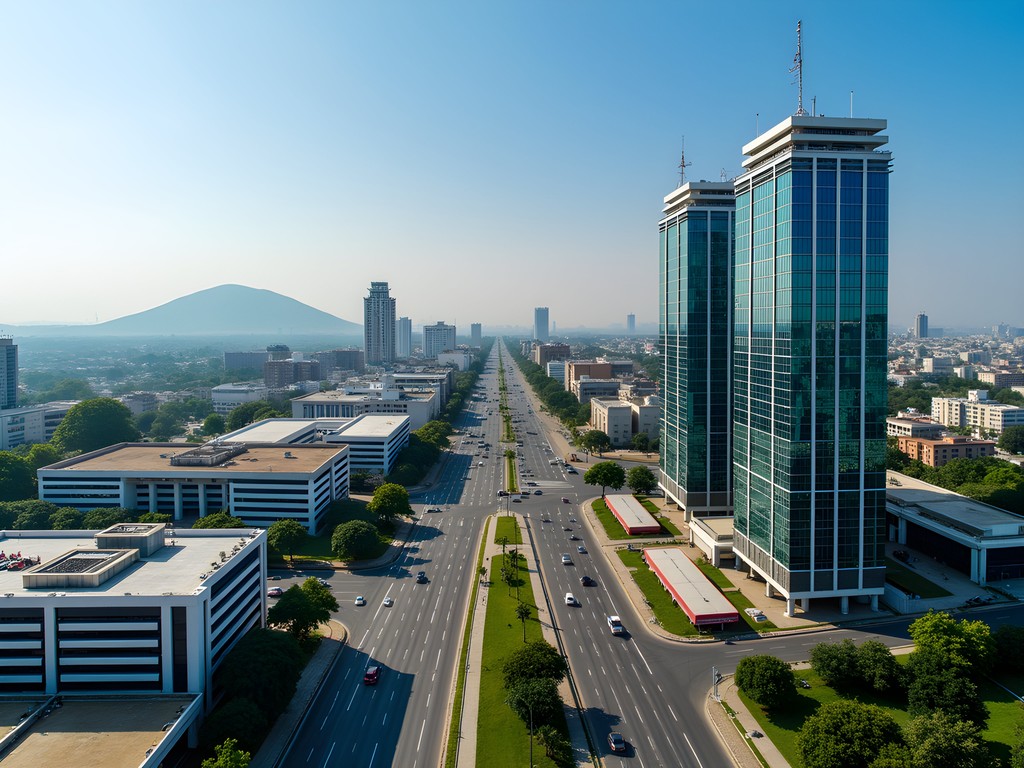
💡 Pro Tips
- Research which government ministry or agency regulates your industry and identify key decision-makers before arrival
- Schedule meetings at least 2-3 weeks in advance for government officials
- Bring plenty of business cards with your title clearly displayed—hierarchy matters significantly here
Accommodation and Work Spaces
Selecting the right accommodation in Abuja requires balancing proximity to business districts against security considerations and amenities. After trying various options over my visits, I've found Maitama and Wuse II districts offer the best combination of safety, convenience, and business services.
The Transcorp Hilton remains Abuja's premier business hotel and unofficial networking hub. Its lobby buzzes with diplomats, government officials, and executives at all hours. While expensive by Nigerian standards (rooms start around $250 USD), its reliable infrastructure—crucial in a city where power outages remain common—and comprehensive security make it worth considering. I've conducted more productive meetings in its lobby café than in many official venues.
For extended stays, serviced apartments in Maitama offer better value. During a three-week assignment covering Nigeria's cricket development program, I stayed at Fraser Suites, which provided reliable WiFi, backup generators, and enough space to host small meetings in my suite. Having a kitchenette also allowed me to prepare simple meals when late work nights made dining out impractical.
Reliable workspace alternatives to your hotel room have improved dramatically in recent years. I particularly recommend Ventures Park in Maitama, where I've spent productive days between meetings. Their day pass includes dependable internet, backup power, and access to a community of local entrepreneurs who provided invaluable market insights during my visits.
For critical video calls or presentations, don't rely solely on hotel WiFi. I always carry a portable WiFi hotspot with a local data SIM as backup—a practice that has saved numerous important calls when hotel connections faltered.
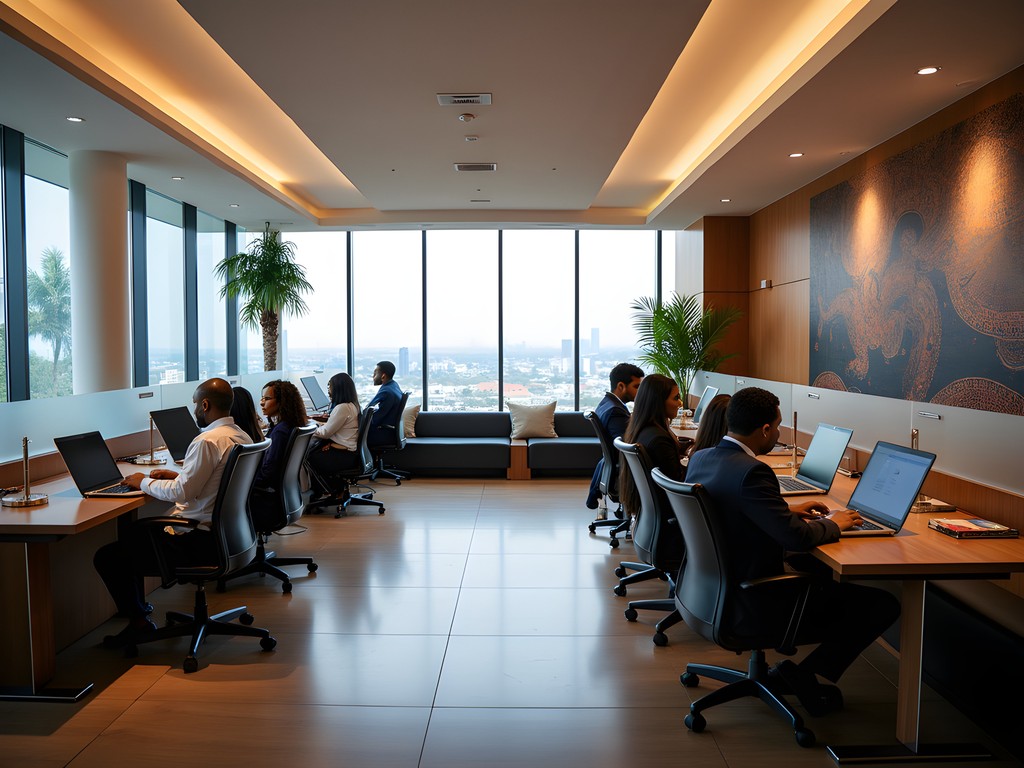
💡 Pro Tips
- Request rooms on higher floors at hotels for better security and less street noise
- Confirm backup power arrangements before booking accommodations
- Pre-arrange airport transfers through your hotel rather than using taxis at the terminal
Transportation and Safety Considerations
Navigating Abuja presents fewer challenges than many African capitals thanks to its planned grid system and relatively good road infrastructure. However, transportation requires careful consideration for both efficiency and security reasons.
Unlike my experiences in Nairobi or Johannesburg, where ride-sharing apps function seamlessly, Abuja still operates primarily on pre-arranged transportation. Most international visitors rely on hotel car services or arrange drivers through their local business partners. During my visits, I've found having a dedicated driver not only enhances safety but provides valuable cultural context and business insights between meetings.
For those preferring more independence, Bolt (formerly Taxify) operates in Abuja and offers a reasonable compromise between convenience and cost. The app functions similarly to Uber, though I recommend using it primarily in daylight hours and for shorter trips between established business areas.
Security considerations should inform all transportation decisions. While Abuja is generally safer than Lagos or Port Harcourt, standard precautions remain essential. Avoid displaying expensive equipment, limit night travel, and maintain awareness of your surroundings, particularly when visiting government buildings where security can be tight and sometimes unpredictable.
One lesson I learned the hard way: always carry a portable phone charger and keep your phone charged. During one visit, my phone died just as I needed to contact my driver after a meeting location changed, leaving me temporarily stranded until I could borrow a local phone.
When moving between meetings, allow considerably more time than Google Maps suggests. Security checkpoints appear frequently and unpredictably, especially near government facilities or following security incidents. What should be a 15-minute journey can easily stretch to 45 minutes depending on checkpoints and traffic conditions.
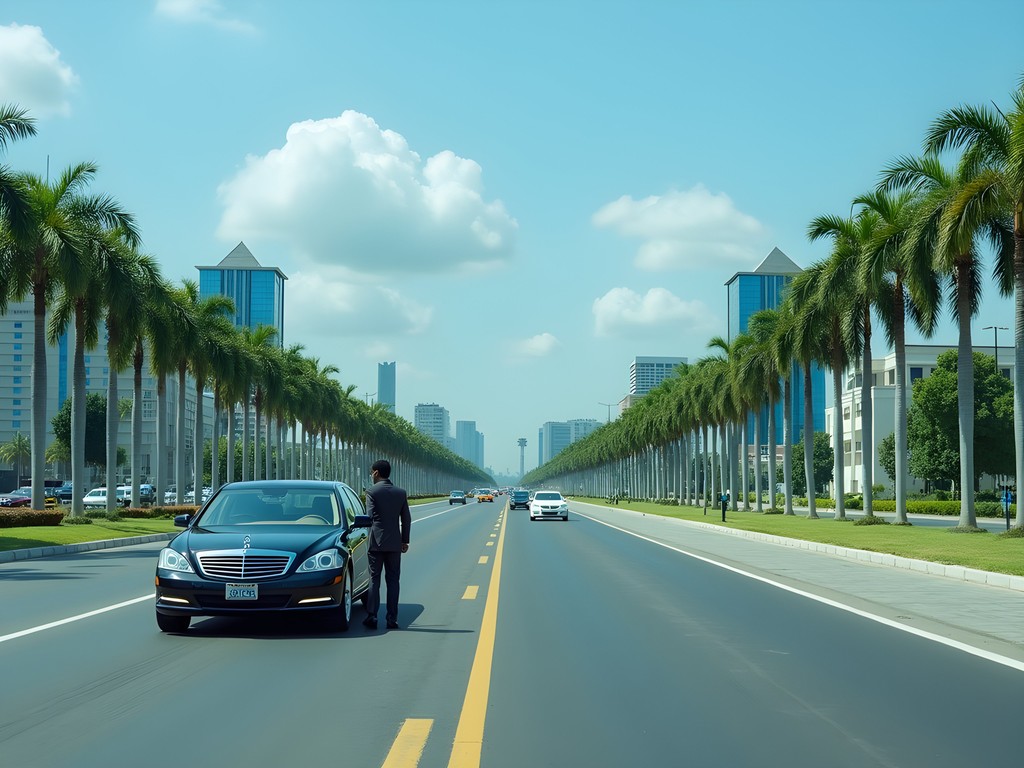
💡 Pro Tips
- Save your hotel's address and phone number in both English and local format for showing to drivers
- Photograph your hotel's business card or location on a map as backup when your phone battery dies
- Arrange transportation through established businesses rather than street solicitations
Business Etiquette and Cultural Navigation
Success in Abuja's business environment requires understanding Nigeria's unique blend of formal protocol and relationship-based negotiations. As someone who has navigated both government ministries and private sports organizations here, I've found that respecting certain cultural norms significantly improves outcomes.
Business attire remains notably formal in Abuja, particularly for government interactions. Men typically wear suits despite the heat, though you'll increasingly see traditional Nigerian agbada or kaftan in professional settings. Women dress conservatively in business suits or dresses that cover shoulders and knees. During my recent meeting with the Nigerian Olympic Committee, I noticed every Nigerian official arrived in either formal Western attire or impeccably tailored traditional clothing.
Meetings rarely begin precisely on schedule, but your punctuality is still expected. The concept of "African time" applies even in government settings, so bring patience and flexibility. I once waited two hours to meet a ministry official who then spent another hour on calls during our meeting—yet this is considered normal rather than disrespectful.
Relationship building precedes substantive business discussions. Expect to spend considerable time on personal conversation, family inquiries, and establishing common connections before addressing agenda items. This isn't mere small talk but essential relationship foundation. I carry a small leather portfolio with photos of New Zealand's landscapes and cricket grounds, which has repeatedly served as an excellent conversation starter before negotiations.
Hierarchy matters tremendously in Nigerian business culture. Address people by titles and professional qualifications ("Professor," "Engineer," "Doctor") when applicable. Business cards should clearly state your credentials and position. Deference to the most senior person present is expected, though don't be surprised when junior staff later prove crucial to implementation.
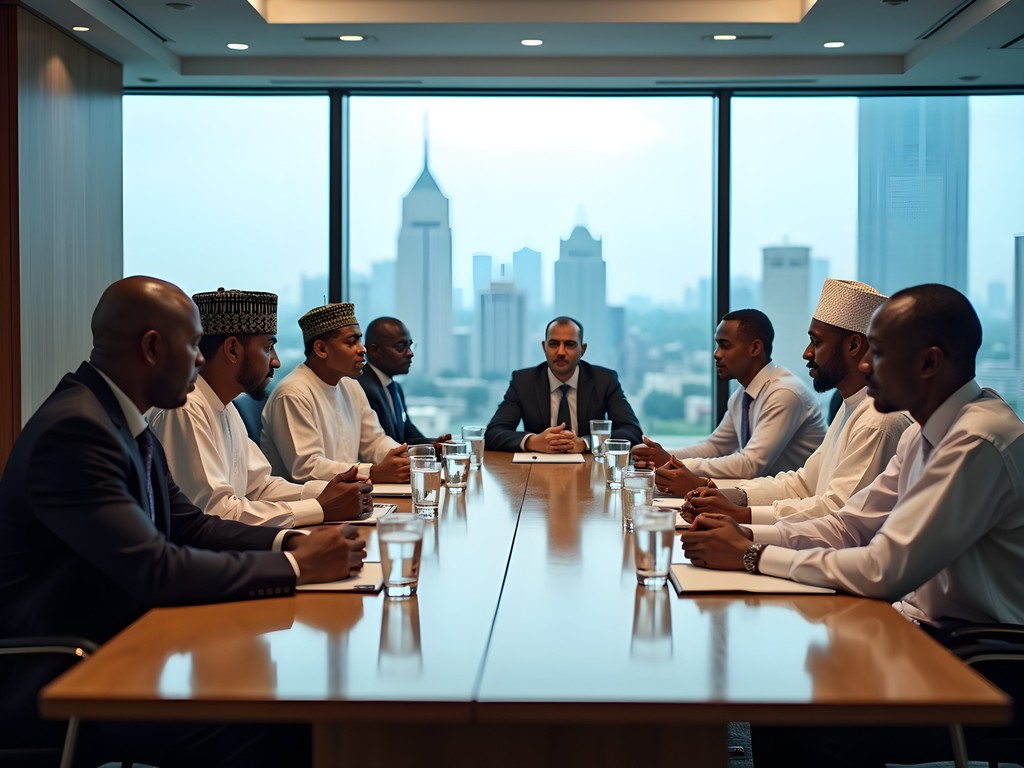
💡 Pro Tips
- Learn basic Hausa or Yoruba greetings—even minimal effort is appreciated and breaks ice effectively
- Bring meaningful but modest gifts from your home country for important business partners
- Allow conversations to develop naturally rather than rushing to agenda items
Finding Balance: Leisure and Natural Escapes
Even the most focused business trip benefits from strategic downtime. Abuja offers surprising pockets of natural beauty and cultural richness that provide necessary mental breaks between negotiations and meetings.
Aso Rock, the massive monolith overlooking the city, offers perspective both literally and figuratively. During a particularly challenging week of stalled negotiations with a sports ministry, I took an early morning hike to view the city from above. The physical exertion and panoramic vistas reset my thinking completely. If you have limited time, even driving to the base viewpoint delivers impressive city perspectives.
Millennium Park provides a more accessible green escape between meetings. Designed by renowned architect Manfredi Nicoletti, this 32-hectare urban oasis offers shaded walking paths and quiet reflection spaces. I've conducted some of my most productive phone calls while walking its perimeter trail, where the natural setting seems to inspire clearer thinking.
For cultural immersion, I recommend visiting Abuja Arts & Crafts Village near the Sheraton Hotel. Beyond tourist souvenirs, you'll find genuine artisans practicing traditional crafts. During my last visit, I watched master weavers creating intricate patterns that have influenced my understanding of Nigerian cultural symbolism in ways that enhanced subsequent business discussions.
If time permits, consider a day trip to Gurara Falls, approximately 90 minutes from the city center. During rainy season (April-October), these falls reach spectacular volumes. I pack my waterproof camera for these excursions, as the mist and occasional downpours would damage standard equipment. The contrast between Abuja's formal business environment and this natural wonder provides perfect psychological balance during intense work periods.
For dining, I recommend Salamander Café in Wuse II for casual business lunches with reliable WiFi and excellent coffee. For impressive client dinners, Nok by Alara combines contemporary Nigerian cuisine with sophisticated ambiance suitable for celebrating closed deals.

💡 Pro Tips
- Schedule outdoor activities for mornings before heat intensifies
- Visit Jabi Lake on weekdays rather than crowded weekends for peaceful reflection
- Ask hotel concierge about current security situations before visiting outlying attractions
Digital Connectivity and Productivity
Maintaining digital connectivity in Abuja requires strategic planning and backup systems. Unlike my experiences in Johannesburg or Nairobi, Abuja's infrastructure still experiences regular challenges despite its status as a capital city.
Mobile data provides the most reliable connectivity solution. I purchase a local SIM card immediately upon arrival—MTN and Airtel offer the best coverage in Abuja. Registration requires your passport and can be completed at the airport or any major provider's shop. The process takes approximately 30 minutes, but the resulting data connection often proves more dependable than hotel WiFi.
For critical video conferences or large file transfers, don't rely solely on public networks. I've had success using the mobile hotspot with a local data SIM as my primary connection for important calls. This combination has proven remarkably stable even during Nigeria's frequent power fluctuations.
Power outages remain common despite Abuja's status as the capital. While major hotels and office buildings maintain generators, transitions between power sources can disrupt meetings and digital work. I never travel without a high-capacity power bank that can recharge my laptop and phone multiple times during extended outages.
Cloud backup becomes particularly critical in environments with unstable connectivity. Before my first Nigeria trip, I configured my devices to automatically back up critical documents to cloud storage whenever connected. This practice saved a crucial presentation when my laptop crashed hours before a meeting with Nigeria's sports commissioner.
For document signing and processing, prepare for both digital and physical workflows. While government offices increasingly accept digital documentation, many still require physical signatures and official stamps. I travel with portable scanning capabilities via my phone's scanner app to quickly digitize physical documents when needed.

💡 Pro Tips
- Download offline maps of Abuja before arrival as GPS navigation often continues working during connectivity gaps
- Schedule large file uploads/downloads during early morning hours when networks are less congested
- Carry a universal power adapter with surge protection for Nigeria's sometimes unpredictable electrical systems
Final Thoughts
Abuja represents Nigeria's aspiration for order and efficiency within a complex national landscape. As business travelers, we navigate between this planned ideal and the organic reality of Nigerian business culture. Success here requires technical preparation—backup power, redundant connectivity, secure transportation—alongside cultural adaptability and relationship investment. After multiple visits, I've found Abuja rewards those who approach it with informed preparation and genuine curiosity. The city's unique position as both government center and emerging business hub creates opportunities unavailable elsewhere in West Africa. Whether negotiating with government ministries or building partnerships with local enterprises, understanding Abuja's distinct rhythm transforms potential frustrations into productive engagements. As Nigeria continues its journey toward economic diversification beyond oil, Abuja stands poised to become an increasingly significant business destination worthy of the prepared traveler's attention.
✨ Key Takeaways
- Relationship-building precedes transactional business in Nigerian culture
- Technical preparation (power, connectivity, transportation) creates resilience against infrastructure challenges
- Government schedules and protocols significantly impact business timelines
- Strategic downtime in Abuja's natural spaces enhances overall productivity
📋 Practical Information
Best Time to Visit
October-April (dry season)
Budget Estimate
$200-300 per day including accommodation
Recommended Duration
5-7 days
Difficulty Level
Intermediate

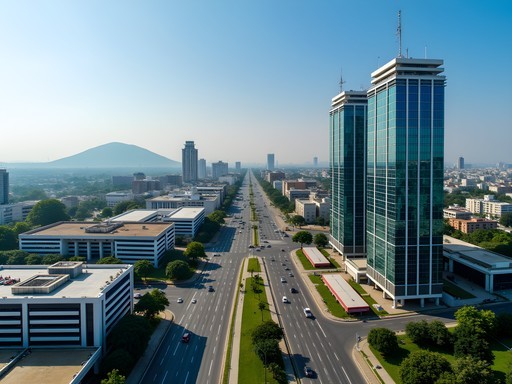
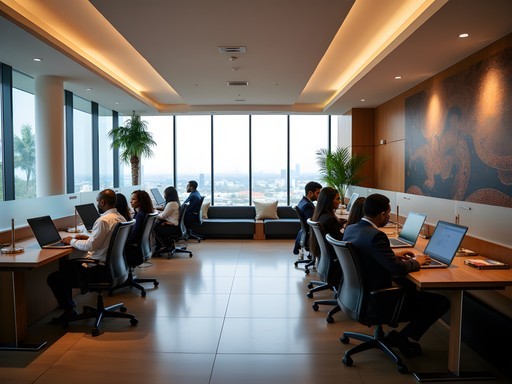
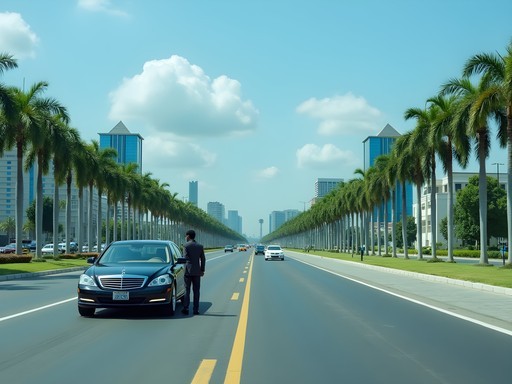
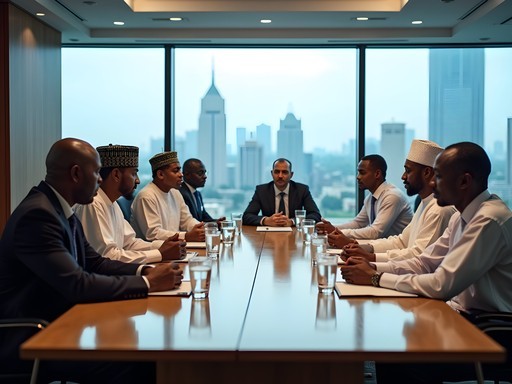




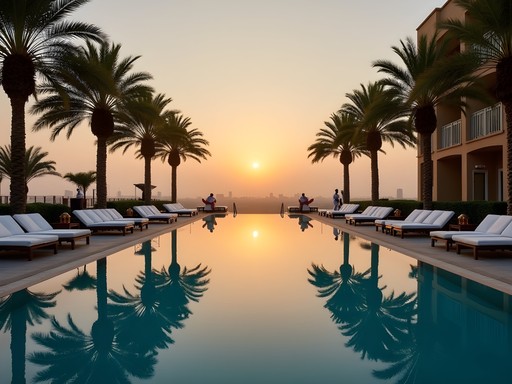

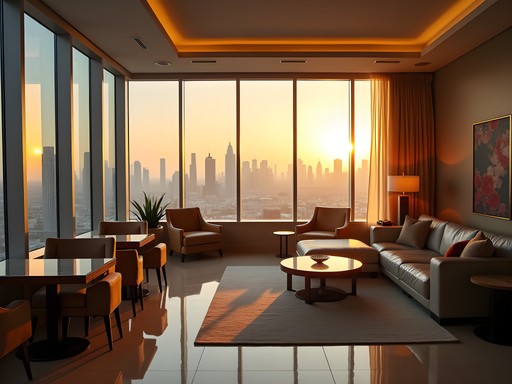
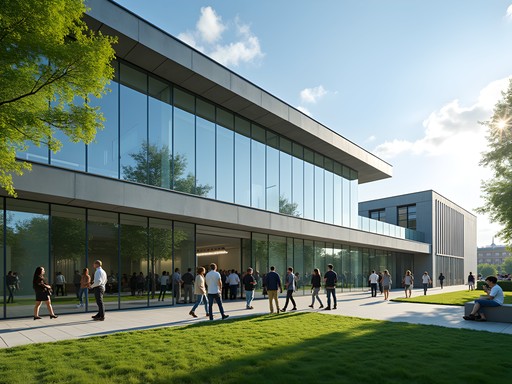

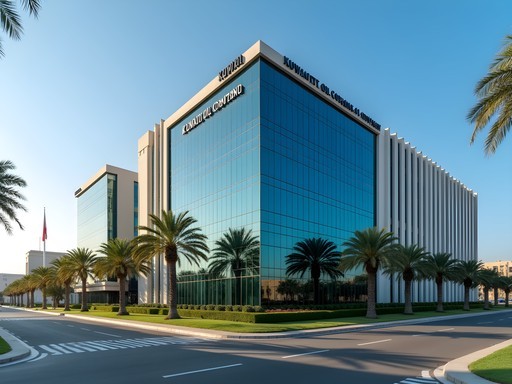

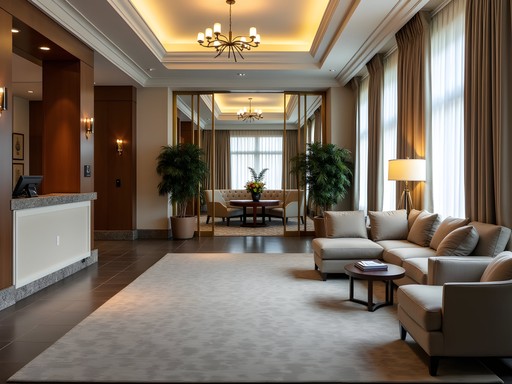
Comments
wildrider6277
Which area did you stay in? Looking at hotels near the Central Business District
Gregory Boyd
Maitama or Asokoro are your best bets for business travel. Close to most offices and embassies. CBD can be convenient but gets congested during work hours.
Gregory Boyd
Solid overview, Amit. I spent three weeks in Abuja last year for a conference series and your point about the city's pace being different from Lagos is spot on. One thing I'd add for business travelers: the power situation can still be unpredictable even in good hotels. I was in a supposedly 4-star place and we had outages during two important video calls. Make sure your accommodation has reliable backup generators, not just 'backup power.' Also, the Jabi Lake area has some decent spots for informal meetings if you need a break from hotel conference rooms. The cultural etiquette section is particularly important - punctuality expectations can vary significantly depending on whether you're meeting government officials versus private sector folks.
Amit Sullivan
Great additions, Gregory! The power backup point is crucial - I should have emphasized that more. Jabi Lake is a nice recommendation too.
waveguy
How safe is the taxi situation really? Heading there for work in March and getting mixed messages from colleagues
Amit Sullivan
Stick with hotel-arranged cars or use Uber/Bolt for your meetings. I wouldn't recommend flagging random taxis, especially at night. Your company should have preferred drivers - ask your local contacts.
waveguy
Thanks! Yeah they mentioned something about a driver list. Appreciate it
Sophia Gomez
Just got back from Abuja last week and wanted to add some fresh insights to Amit's excellent guide. The business landscape is evolving rapidly with the new administration focusing heavily on tech and financial services. If you're there for meetings, be prepared for potential schedule changes - flexibility is key! For accommodation, I found Transcorp Hilton still offers the best combination of reliable facilities and networking opportunities (the lobby is basically an informal business hub). For women business travelers, I noticed significantly more female executives in meetings compared to my visits in previous years, which was great to see. One practical tip: traffic is getting worse, so always buffer at least 30-45 minutes for crosstown meetings, especially around the Central Business District during government working hours.
wanderbackpacker
Thanks for the update! How did you handle currency exchange there?
Sophia Gomez
I exchanged some at the airport (not the best rates but convenient) and then used the ATM at Transcorp for additional cash. Many places accept cards now but always have cash for taxis and smaller vendors.
luckyrider
Just got back from Abuja last week! Your section on transportation was super helpful. I ended up using Bolt instead of regular taxis and it worked great. One thing though - traffic can be INSANE during government working hours (8am-4pm), so schedule meetings with plenty of buffer time. Also found that bringing small gifts from my home country for business partners was really appreciated. The cultural navigation tips were spot on - showing respect for hierarchy made everything go smoother. Loved the restaurant recommendations too!
wavevibes
Good to know about Bolt! Did you feel safe using it?
luckyrider
Yeah, felt totally safe! All my drivers were professional. Just make sure to verify the license plate before getting in, standard practice anywhere really.
Megan Martin
Amit, this is spot-on about Abuja's business landscape! I was there earlier this year for a series of meetings with government officials. One thing I'd add is that having a local contact who can help navigate the bureaucracy is absolutely essential. I found scheduling meetings often required follow-up calls and flexibility. The Transcorp Hilton ended up being my go-to for impromptu meetings - their business center was surprisingly efficient. Also worth noting that power outages are still common, so having backup power for your devices is crucial. Did you find any good co-working spaces beyond the hotel options?
luckyrider
The Transcorp was my base too! That pool area is a surprisingly good place to have casual business meetings in the evening.
wavevibes
Great post! I'm heading to Abuja for the first time next month for a conference. How's the wifi situation in most hotels? Reliable enough for video calls?
Megan Martin
I was there in June and found most business hotels have decent wifi, but I always travel with my portable hotspot as backup. Saved me during a power outage at my hotel!
wavevibes
Thanks for the tip! Might look into getting one before my trip.
mountainblogger
Those wide boulevards are no joke in the heat! Bring a hat!
Riley Griffin
This brought back memories of when I accompanied my husband on his business trip to Abuja last year! While he was in meetings, I explored the city and found it surprisingly navigable compared to other African capitals we've visited. The Millennium Park was a peaceful oasis, and I felt comfortable walking there during daytime. One cultural tip I'd add - when meeting business contacts, we learned to greet everyone in the room individually rather than a general hello to the group. Small gesture but made a big impression! Also found that having a hotel with backup generators was essential - power cuts happened a couple times during our stay.
luckyfan
How's the internet reliability in Abuja? Need to do video calls while there.
coolguy3711
It's decent in major hotels and office buildings but can be spotty. I always buy a local SIM with data as backup - MTN or Airtel work well.
Venture X
Premium card with 2X miles, $300 travel credit, Priority Pass